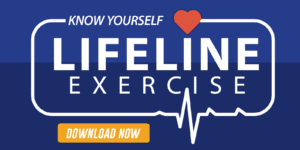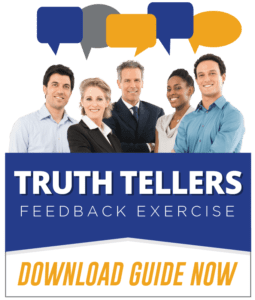By: David Novak, Co-Founder & CEO of David Novak Leadership
What do you want to be when you grow up? People are asked this question all the time, especially when they are young. Did you know that only 30% of global workers work in the field of their childhood dream job?1
I have to confess that I did not end up working in the field of my childhood dream job. When I was growing up, I wanted to be a Major League Baseball player before the reality set in that I couldn’t hit a curve ball. At one time, I saw myself as a sports writer.
Because my dad worked for the U.S. Coast and Geodetic Survey, marking latitudes and longitudes for the nation’s mapmakers, we moved every three months from small town to small town. I actually lived in 23 states by the time I was in seventh grade! My dad would hook up our trailer to his government truck and we would move to the next town. We literally took our neighborhood with us as the rest of the surveyors and their families moved together. The largest house I lived in until junior high was 8-foot-wide by 40-foot long. I always tell people I succeeded because of my upbringing, not in spite of it. (This is important to me.) The biggest break I got was having loving parents who wanted me to achieve the American dream.
Who would think that a kid from the trailer parks, whose childhood can best be described as nomadic, would ever have a chance at becoming the CEO of Yum! Brands at the age of 46? Certainly I wouldn’t have. Yet the lessons I learned from my trailer park days actually helped me become a successful CEO. Let me share one particular example about how my past impacts my present.
 My dad has always been tremendously supportive, and he worked his tail off to give us a better life. But in many ways my mother was my first mentor. Every time we got to a new place, she would take me to the local school to get me registered and then say to me, “Look, David, you’ve got to take the initiative to make friends. Don’t hang back and wait for the other kids to come to you. We’re only going to be here for a few months, so make them count.”
My dad has always been tremendously supportive, and he worked his tail off to give us a better life. But in many ways my mother was my first mentor. Every time we got to a new place, she would take me to the local school to get me registered and then say to me, “Look, David, you’ve got to take the initiative to make friends. Don’t hang back and wait for the other kids to come to you. We’re only going to be here for a few months, so make them count.”
That’s how I learned how to size people up in a hurry and how to figure out quickly who the good ones were and who I should avoid. As a result, when it comes to assessing people I’ve got a good gut instinct that I still listen to whenever I meet someone new (which, when you’re CEO, is practically all the time) or have to decide whether to hire or promote someone.
Fast forward… Soon after becoming CEO of Yum! Brands, I went to my first meeting of the Business Council. Its members are one hundred twenty-five of the top CEOs in the country, and I was meeting these captains of the industry for the first time. They are the people who run General Electric, Boeing, and General Motors, and they had no idea who I was. It wasn’t all that different from the first day at a new school. I quickly sized everyone up and, remembering that they all put their pants on the same way every morning, worked my way around the room. If it hadn’t been for those early school experiences, I’m not sure this would have come so naturally to me in my later life.
But I’m not the only one with a humble beginning who ended up in a corner office. Brian Cornell, the Chairman and CEO of Target Brands, also had a humble upbringing with many challenges. But he learned from these challenges and now uses what he learned from his early years to lead many as the CEO of Target. I recently interviewed Brian as part of our biweekly Podcasts. Here’s what he shared.
I grew up in a really humble environment. I lost my dad when I was young and my mom had a series of illnesses, so I had to grow up the hard way. I worked for many years as a little kid – mowing lawns, shoveling snow, and washing trucks. So if you look back in time, when I was a kid, you would say there’s no chance that this person, growing up in this kind of environment, ends up doing what he’s doing.
I learned early in life that there’s only three ways that I could put my economic circumstances aside and just move forward:
- In school, because when the test is handed out, nobody cared who my dad was or how much money I had.
- In sports on the playing field because there, the playing field was level.
- At work, because once you showed up, it was all about performance and execution and doing the things that were put in front of you.
I embraced the level playing field idea early. I didn’t feel sorry for myself. I said I’m gonna perform, excel, and take advantage of opportunities. And somehow it all worked out. It wasn’t some magical path. I didn’t grow up in a CEO’s household. I had to work for literally everything I had by finding part-time jobs so I had money baseball cleats and football equipment. But it all worked out because I found what worked for me.
And I was really fortunate to have great mentors and leaders and people who just cared, like my grandparents who raised me. My grandfather was an engineer and he taught me about hard work, great values and the importance of a great attitude. My grandmother was really focused on education, and she talked about working hard in school, learning, and what that was going to bring to me. But most importantly, my grandparents were two individuals who really cared. They showed me how important it was to have people who cared for you – to give you advice and sometimes to give you tough love.
Brian learned how to work hard and care about people from his humble upbringing and he uses that today in his role as Chairman and CEO of Target.
Walt Disney puts a positive spin on the ways adversity from your past can have a positive impact on your future. “All the adversity I’ve had in my life, all my troubles and obstacles, have strengthened me… You may not realize it when it happens, but a kick in the teeth may be the best thing in the world for you.”
What about you? How does your upbringing or the adversities from your past impact the way you lead today? Download this guide to find out! It provides some questions to help you evaluate your past so you can better understand why you lead the way you do today. Your past can be a powerful tool if you’re willing to revisit it and learn from it. Are you willing?
 Maybe you know someone who has a challenging past. Would they be inspired by what you just read? Pay it forward today by sharing this blog and guide with them. By showing you care, you may inspire them to become a better leader. Go Lead!
Maybe you know someone who has a challenging past. Would they be inspired by what you just read? Pay it forward today by sharing this blog and guide with them. By showing you care, you may inspire them to become a better leader. Go Lead!
1 https://qz.com/29058/workers-outside-the-us-are-more-likely-to-pursue-their-dream-jobs/


















